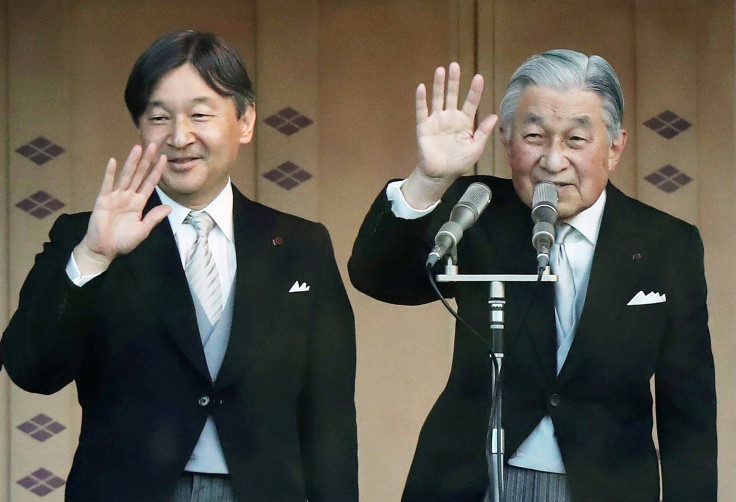Reiwa, Japan's New Imperial Era Name, Taken From 'Manyoshu' Poetry Anthology

Japan’s new imperial era beginning May 1, 2019, will be known as Reiwa, the country's Chief Cabinet Secretary Yoshihide Suga announced Monday, a month before Crown Prince Naruhito ascends the throne.
Suga unveiled the name on live television, after nine experts on the Japanese language and cultural tradition selected the name from six options given by Japanese scholars. The era name (called gengo in Japanese) is used in newspapers and officials documents including driver’s licenses.
“We hope the new name will be widely accepted by the Japanese people and will carry meaning in their lives,” Suga said, the Guardian reported.
Gengo is usually announced after the accession of a new monarch, however, the government decided to announce it prior to the succession this time in order to minimize the problems caused by the calendar change after Emperor Akihito steps down April 30.
The name Reiwa, meaning peace, harmony and fortune, comes from an anthology of Japanese poems called “Manyoshu”. It is the country’s oldest anthology of poems, and the verses are on the subject of plum petals blooming after winter.
Reiwa. pic.twitter.com/9WJHNZA5Zm
— Motoko Rich (@motokorich) April 1, 2019
In a press conference post the unveiling of the name, Japanese Prime Minister Shinzo Abe said this was the first time an era name was chosen from Japanese poetry and not Chinese classics. He added that the name was selected from “Manyoshu” and represents the “long heritage of the Imperial family, stability of the state and happiness of people.”
The era name comes with the hope that “We would like to create a society where Japanese people can be blooming all their flowers that they could create,” he said.
“Japan is proud of its long history, culture and tradition,” Abe said, adding, "I hope the new era name will be deeply rooted in the lives of the people of Japan.”
Abe, however, refused to comment on the selection process of the new name.
Gengo originated in ancient China and spread to other regions including Vietnam and the Korean peninsula. However, all other countries stopped using era names, making Japan the sole country that still uses the concept. The country’s first gengo was Taika, starting in the year 645 CE. The current era under Emperor Akihito is called Heisei, and means "peace" and "achieve.” Initially, the gengo was altered in case of an auspicious event or natural calamities like earthquakes, in modern times, it is changed only at the time of imperial succession, Kyodo News reported.
© Copyright IBTimes 2024. All rights reserved.





















